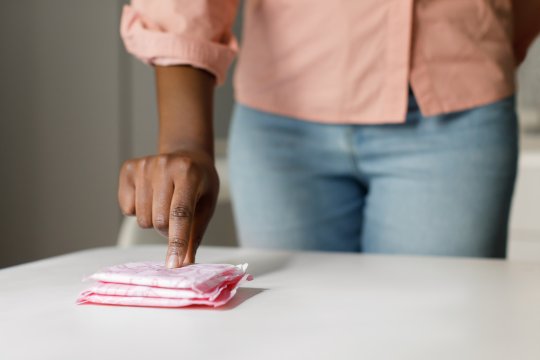A revolutionary draft act. A great opportunity for girls in schools

Menstrual taboo
The menstrual period is a physiological phenomenon, but somehow talking about it is highly conventionalised. We treat it as a taboo, which we perpetuate and pass on to future generations.
Another topic that we meet with silence is menstrual poverty, which should be understood both as educational poverty (especially in the context of sex education) and in terms of limited access to intimate hygiene products [1]. Many of us are completely unaware of the scale of this phenomenon or even of its existence.
Meanwhile, a survey commissioned by the Kulczyk Foundation and conducted by the polling company ‘Difference’ shows that one in five female Poles sometimes don’t have the means to buy menstrual pads. This is especially true for women who live in poverty, raise children as single parents, or are in violent relationships. They may have no funds to buy sanitary products, or they may buy very poor quality ones, which significantly affects their sense of well-being and self-confidence.
– Access to menstrual hygiene products is a basic human right. Without it, women and girls can’t live with dignity. It’s outrageous that girls around the world don’t have the chance to get a better education and that women don’t have the chance to go to work because they are too poor to have their period. There have been no efforts to address this problem for too long – says Dominika Kulczyk, President of Kulczyk Foundation.
With the support from the ‘Period Coalition’, which works toward normalising the issue of periods, the creation of the first Polish draft Act on Menstruation has been initiated. The Act is to introduce free access to menstrual products and education about menstrual health in all Polish schools.
This will allow teenage girls to menstruate with dignity. It will boost their self-confidence and remove the taboo surrounding periods. Also, it will dissuade them from skipping class, which more than half of the girls taking part in the survey had felt compelled to do [2].
The idea, while extremely important, is not revolutionary. There already is free access to hygiene products in Scotland. It’s the first country to tackle menstrual poverty on such a large scale. As of 2018, all schools and higher education institutions are required to provide free access to menstrual pads and tampons, and in 2020 the requirement was extended to all buildings of public institutions (including offices, among others). A year ago, this provision was extended and free access to menstrual products is now guaranteed to all women (all you have to do is download the app and check the nearest pickup point).
What is more, adequate education about menstruation means preventing the exclusion that many girls experience. The fact that schools do not provide access to hygiene products for adolescent girls who are not prepared for the onset of their periods is met with silence. These are available at the school nurse’s office (usually open only a few times a week for 2–3 hours), and their quality is often very low. In some schools, there’s also the problem of toilet paper rationing, making it impossible for female students to take care of their hygiene during their periods or to secure a soiled pad before throwing it in the bin. All of this adds to the perception of periods as a negative phenomenon, which in turn has a negative impact on our mental condition and intensifies discrimination.
Therefore, it’s worth joining forces and, together, making an appeal to people in positions of power. Saying YES to free pads in every Polish school costs nothing, but can change the sense of well-being of many teenage girls. Go to takdlapodpasek.pl and take women’s side!
[1] Jankowski Hubert, 2021, Najważniejsze cechy polskiego dyskursu o menstruacji na podstawie wywiadów z kobietami w wieku 22–24 lat (część I), Oblicza Komunikacji, 13, 163–180.
[2] 54 percent of the surveyed teenage girls have been absent from school due to menstruation; the same number have had to return home due to severe pain experienced during their periods [source: Report on menstruation based on the qualitative and quantitative survey by Difference for Kulczyk Foundation].
Więcej o programie: takdlapodpasek.http://takdlapodpasek.plpl
Tekst został opublikowany na https://kobieta.wp.pl/tag/takdlapodpasek

